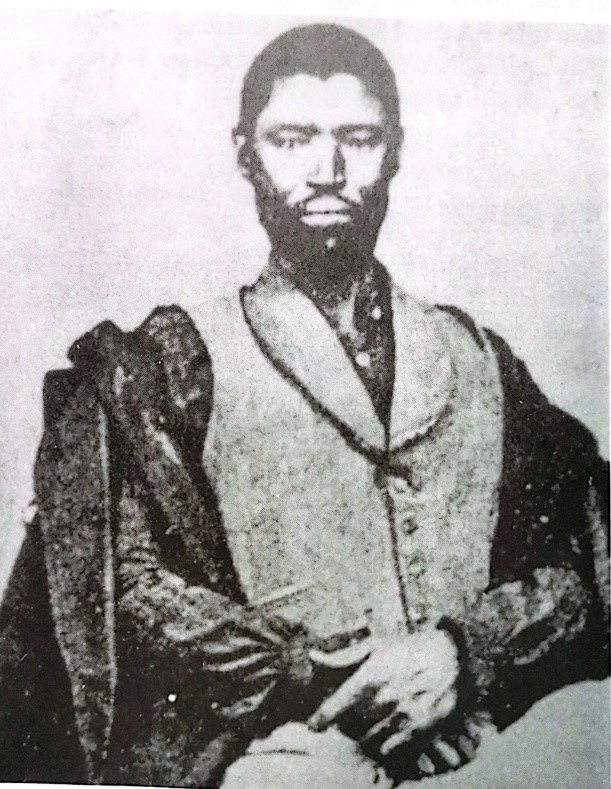SANDILE
- 4 Min Read
Sandile (1820-May 29, 1878), a Xhosa prince of the House of Gaika or Ngqika, was the last Paramount Chief of a united Rarabe people (1840-78). His father was Ngqika, Chief of the Rarabe, who had feuded with his uncle Ndlambe for the chieftaincy.

PHOTO CAPTION: Sandile. SOURCE: EA Library
At the time of Sandile’s chieftaincy this Xhosa branch was occupying the area from the Fish River to Algoa Bay (Port Elizabeth), having probably come to the coast from the Drakensberg Range about l660-70.
As an infant Sandile suffered from poliomyelitis and, as a result, he limped all his life. He has been described as a frail child, physically weak and excessively spoiled by his mother and older brothers.
On his father’s death in 1829, a regency was appointed to administer the group until eight year-old Sandile came of age. The regency included his mother and his brothers, Maqoma and Tyale and Anta. His eldest brother Maqoma was the Regent.
Growing up without restraint of a father, Sandile was, according to lifetime associate Charles Brownlee, “from earliest boyhood surrounded by flatterers and sycophants.”
In 1834-35, Maqoma led an assault against the Cape Colony. Sandile remained neutral in the war and was rewarded for his neutrality with support from the Cape. In 1840, he formally took over the chieftaincy, gradually winning the loyalty of his people.
Sandile encouraged his people to raid the cattle of the white settlers. To stop the raids, the Cape Colony reinstituted the Reprisal System, under which farmers who had had cattle stolen by the Xhosa could follow the spoor and reclaim their cattle or seek compensation at the homestead nearest the spoor.
Between 1846 and 1947 the Cape Colony and the Xhosa fought another border war. Sandile finally surrendered and was forced by the newly arrived High Commissioner and Cape governor Harry Smith to humiliate himself in acknowledgement of Smith’s sovereignty.
Under Governor Smith the Cape Colony had begun its formal subjugation of the Southern Nguni. Smith annexed as British Kaffraria all the territory between the Keiskamma and the Kei Rivers and in l850 he deposed Sandile and appointed Charles Brownlee, a white civil commissioner, in his place.
The Xhosa attacked the military expedition sent to arrest Sandile and annihilated the military villages Smith had set up in British Kaffraria. The war lasted two years (1850-52) and at the conclusion Sandile was forced to move into an even smaller territory.
By now Harry Smith had been recalled and a new, more conciliatory governor was appointed. Governor Cathcart restored Sandile as chief but gave more Xhosa land to whites and to the Mfengu, who had collaborated with colonial forces.
In 1856 a great tragedy occurred among the Xhosa to the north of the Kei, the amaGcaleka, and affected the Ngqika as well. Under the spell of the prophet Mhlakaza, a young girl, Nongquase said that if all the Xhosa destroyed their wealth they would live in abundance and the whites would be thrown into the sea. The Gcaleka chief ordered his people to destroy all their cattle and foodstuffs. Sandile cooperated half-heartedly and only some of his people obeyed.
Nevertheless, the chiefdoms were destroyed; thousands of people died of starvation and others dispersed and went to the Cape Colony in search of work. As a result, the Xhosa were largely broken and completely unable to resist the British intrusion.
Sandile withdrew and avoided any more contact with the British. His territory was annexed to the Cape Colony in 1866. In 1878 he was drawn into a fìnal border war in support of the Gcaleka and was killed in battle, his subsequent decapitation a fitting metaphor for the loss of Xhosa power and independence.
VIRGINIA CURTIN KNIGHT



